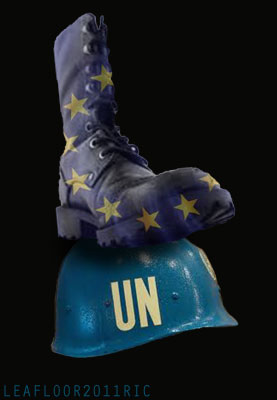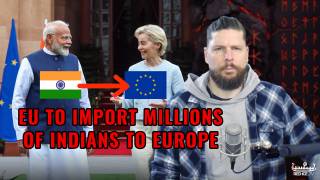EU wins new powers at UN, transforming global body
Source: euobserver.com

EU Council President Herman Van Rompuy will now be able to address the United Nations no differently from US President Barack Obama, Venezuela’s Hugo Chavez or Russia’s Dimitri Medvedev.
In order to win the vote, the EU had to agree to changes to the global organisation that transforms the UN from an assembly of nation states into a body that also offers representation rights to regional blocs as well, including potentially the African Union, the Arab League and the South American Union.
The EU on Tuesday was given almost all the rights in the global chamber that fully-fledged states enjoy after the General Assembly backed 180 to two a resolution giving the bloc, which until this week only maintained observer status at the UN, the union the right to speak, the right to make proposals and submit amendments, the right of reply, the right to raise points of order and the right to circulate documents.
There will also be additional seats put in the chamber for the EU’s foreign policy chief, High Representative Catherine Ashton and her officials.
 Ashton and her team have lobbied heavily over the last six months, according to her representatives, with a major offensive in the last 48 hours by the high representative herself in New York, to push through the changes after the EU was dealt a surprise defeat last September when other regional blocs voted against a similar resolution.
Ashton and her team have lobbied heavily over the last six months, according to her representatives, with a major offensive in the last 48 hours by the high representative herself in New York, to push through the changes after the EU was dealt a surprise defeat last September when other regional blocs voted against a similar resolution.She declared herself "delighted" at the win, which, she said: "will in future enable EU representatives to present and promote the EU’s positions in the UN."
Last year, two groups in the chamber resisted the move. The first, some of Brussels’ closest allies in the world, Canada, New Zealand and Australia, consulted with each other and agreed to abstain on the original motion, according to one Commonwealth diplomat, as they were annoyed by the "presumption" of the EU, who had delivered the resolution for consideration the night before the vote.
After half a year of consultations, the Commonwealth allies appear to have had their procedural concerns dealt with.
But the second group, led by Caricom, the Carribean’s regional integration bloc inspired by the EU, felt that it was unfair that Brussels should win additional rights but not themselves or other similar bodies, from the Gulf Co-operation Council to the Pacific Islands Forum.
In order to win over these refuseniks, the EU had to back an amendment to the resolution, put forward by Hungary - currently at the helm of the bloc’s six-month rotating presidency - that gives these other blocs the same rights Brussels has won, should they ask for them.
"Following the request on behalf of a regional organisation which has observer status in the general assembly and whose member states have agreed arrangements that allow that organisation’s representatives to speak on behalf of the organisation and its member states, then the general assembly may adopt modalities for the participation of that regional organisation’s representatives," read the amendment.
Article from: euobserver.com






















